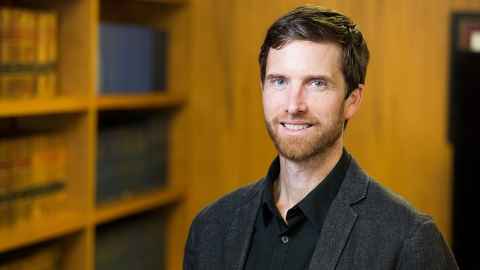The struggle against corruption
15 January 2019
Associate Professor Timothy Kuhner from the Auckland Law School has co-written a short film with staff members at the United Nations Office on Drugs and Crime called The Struggle Against Corruption.

Associate Professor Timothy Kuhner is part of a United Nations group of experts and academics working on combating corruption.
The film, The Struggle Against Corruption, looks at how corruption
has manifested itself throughout history, the devastating effects of corruption today, and how we can work to counter this crime.
Corruption takes many forms - bribery, conflicts of interest, money laundering, trading in influence, abuse of functions, embezzlement, extortion, organised crime - and affects developed and developing countries alike. It increases poverty, fuels economic and political inequalities, leads to human rights violations, cripples economic development, stifles entrepreneurship and deters investment, derails environmental protection and climate change policies, and corrodes the integrity of economic and political systems.
You get nationalism and xenophobia. When people sink into that position of fear and insecurity, racism and nationalism increase predictably.
Among the latest of corruption’s worrisome effects is rising insecurity, cynicism and frustration, and a corresponding increase in illiberal populism. According to a Freedom House report, political rights and civil liberties have been decreasing for 13 years straight, and observers warn of rising authoritarianism, abuses against the free press, attacks on judges and the rule of law, and alarming acceptance of the idea that the ends justifies the means, and the targeting of political opponents and minority groups as enemies. These changes are most popular where democracy and capitalism are derailed by corruption and people don’t have the tools to fight it.